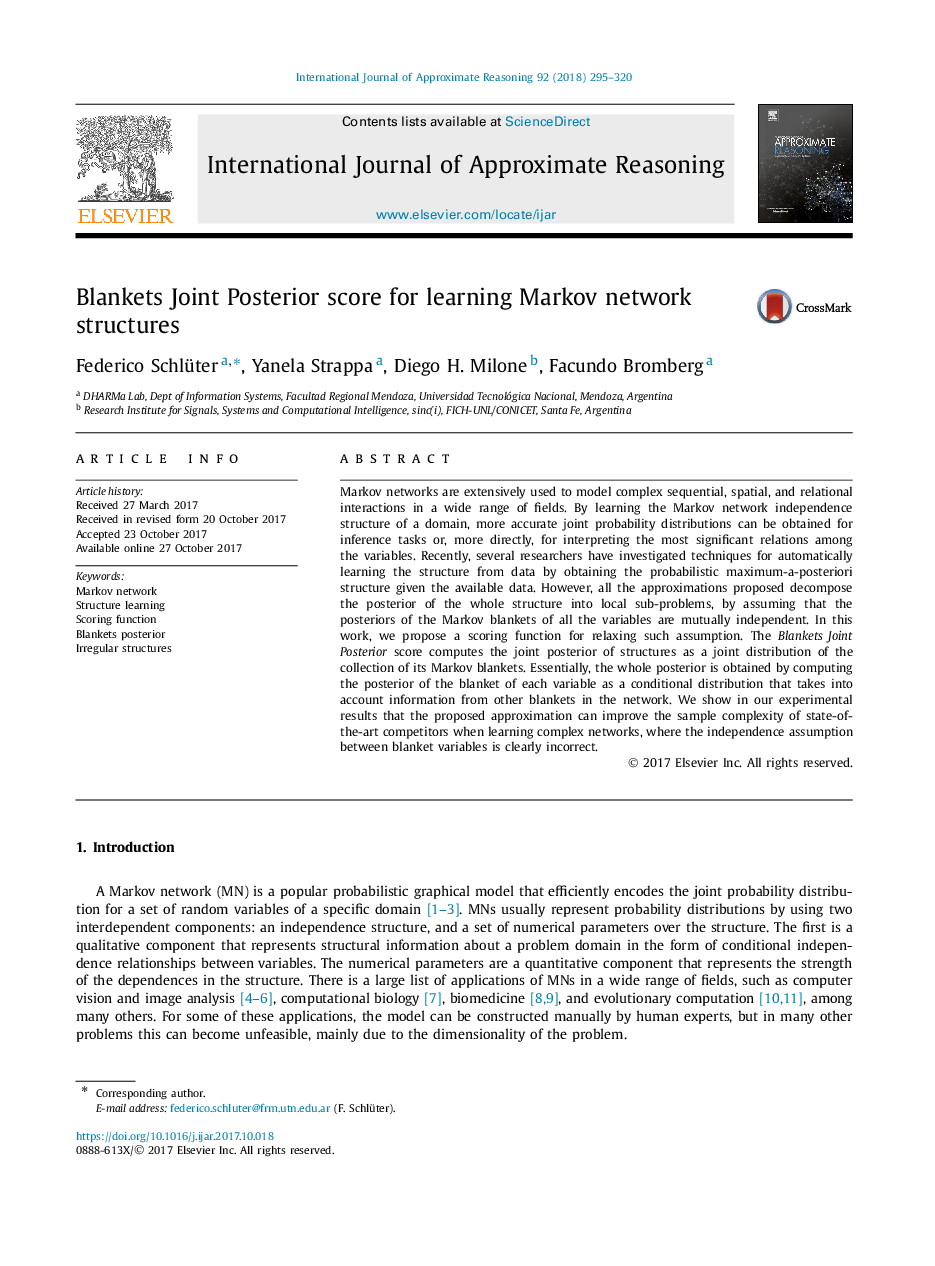| Article ID | Journal | Published Year | Pages | File Type |
|---|---|---|---|---|
| 6858869 | International Journal of Approximate Reasoning | 2018 | 26 Pages |
Abstract
Markov networks are extensively used to model complex sequential, spatial, and relational interactions in a wide range of fields. By learning the Markov network independence structure of a domain, more accurate joint probability distributions can be obtained for inference tasks or, more directly, for interpreting the most significant relations among the variables. Recently, several researchers have investigated techniques for automatically learning the structure from data by obtaining the probabilistic maximum-a-posteriori structure given the available data. However, all the approximations proposed decompose the posterior of the whole structure into local sub-problems, by assuming that the posteriors of the Markov blankets of all the variables are mutually independent. In this work, we propose a scoring function for relaxing such assumption. The Blankets Joint Posterior score computes the joint posterior of structures as a joint distribution of the collection of its Markov blankets. Essentially, the whole posterior is obtained by computing the posterior of the blanket of each variable as a conditional distribution that takes into account information from other blankets in the network. We show in our experimental results that the proposed approximation can improve the sample complexity of state-of-the-art competitors when learning complex networks, where the independence assumption between blanket variables is clearly incorrect.
Related Topics
Physical Sciences and Engineering
Computer Science
Artificial Intelligence
Authors
Federico Schlüter, Yanela Strappa, Diego H. Milone, Facundo Bromberg,
